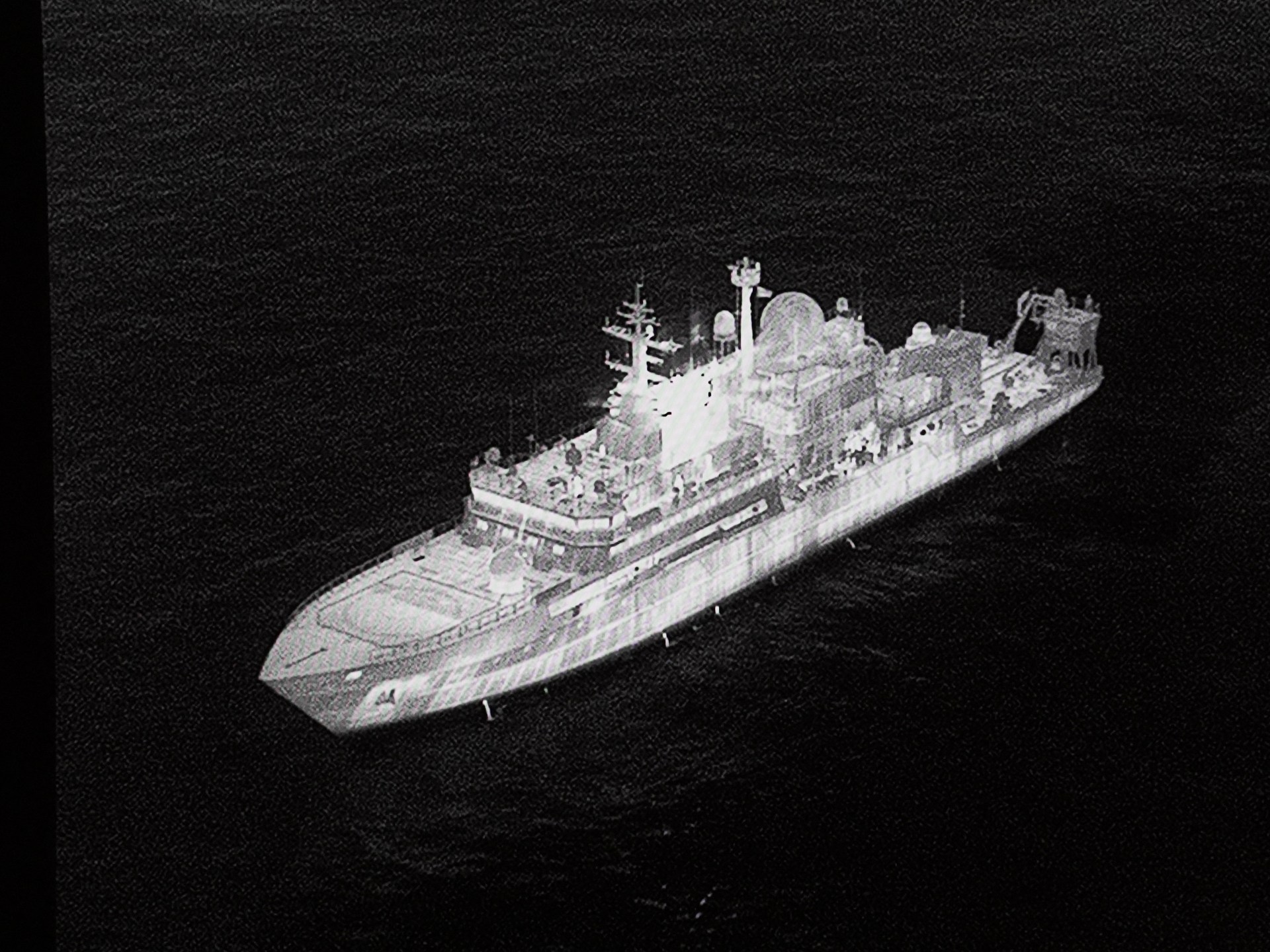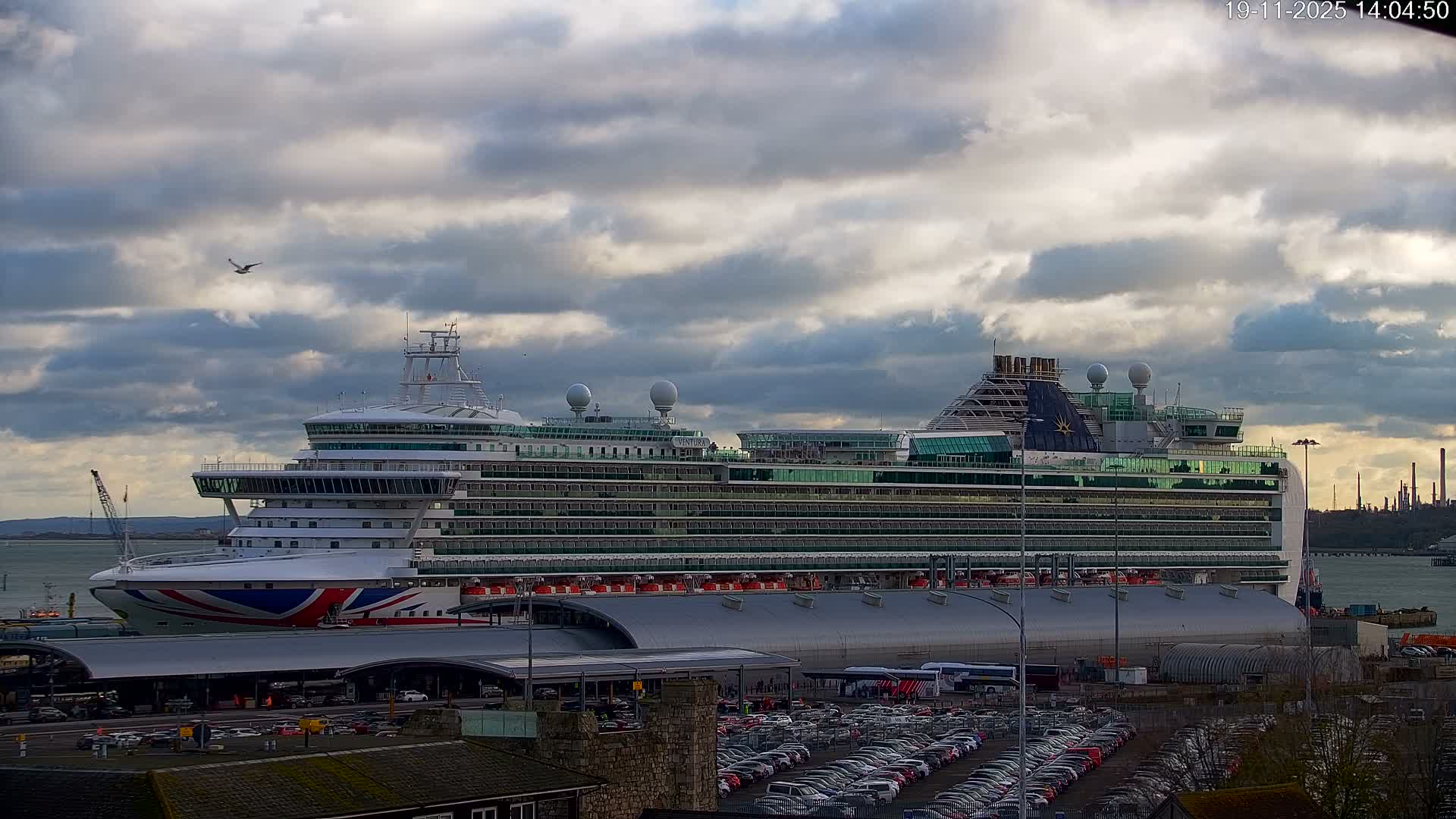UK Issues Stern Warning Over Russian Spy Ship's Laser Attack on RAF Pilots
The United Kingdom has issued a stark warning, declaring its readiness to consider “military options” following an alarming incident involving a Russian spy ship. The vessel, identified as the Yantar, reportedly directed lasers at British Royal Air Force (RAF) pilots who were monitoring its activities off the northern coast of Scotland. This serious escalation comes after weeks of the Yantar operating near British waters.
During a speech delivered in London on Wednesday, Defence Secretary John Healey vehemently condemned the Yantar's actions, labeling them as “deeply dangerous.” Healey asserted that Britain is prepared to respond decisively, contingent on the Russian ship's subsequent movements.
Escalating Tensions and UK Response
The Yantar, a ship explicitly designed for intelligence gathering and mapping undersea infrastructure, had been tracked by a UK naval frigate and RAF P-8 planes as it navigated waters north of Scotland. Healey conveyed a direct message to Russia and President Vladimir Putin: “We see you. We know what you’re doing. And if the Yantar travels south this week, we are ready.”
Emphasizing the gravity of the situation, Healey highlighted this as the first instance of the Yantar targeting British RAF personnel in such a manner, underscoring the UK’s extreme concern. In response, the Defence Secretary confirmed he had modified the navy’s rules of engagement, granting them expanded authority to “monitor more closely” the vessel's operations. “We have military options ready should the Yantar change course,” he reiterated.
Britain’s air and naval forces routinely shadow potential threats in proximity to its territorial waters and airspace. The frequency of incursions by Russian vessels and submarines has markedly increased since Russia's full-scale invasion of Ukraine in 2022.
Russia's Rebuttal and Broader Context
In its official statement from the Russian embassy in London, Moscow dismissed Healey's accusations as “Russophobic” and an attempt to “whip up militaristic hysteria.” The embassy countered that Russia’s actions “do not affect the interests of the United Kingdom and are not aimed at undermining its security,” specifically denying any interest in British underwater communications. It urged Britain to “refrain from destructive steps that exacerbate the crisis phenomena on the European continent.”
British officials, however, describe the Yantar as capable of surveillance in peacetime and sabotage during war. They pointed to a previous incident in January when the vessel investigated UK defenses while transiting the English Channel, “loitering over UK critical undersea infrastructure” before proceeding to the Mediterranean.
Concerns about Kremlin-linked vessels extend to Russia’s “shadow fleet” of sanctions-evading oil tankers, which have been implicated in “underwater hybrid warfare” incidents, including attacks on pipelines and cables. A notable case in December saw Finnish authorities seize a Russia-linked ship suspected of intentionally damaging an undersea power cable in the Baltic Sea between Finland and Estonia.
Future Defence Posture and Investment
Healey’s forceful warning coincided with his advocacy for increased defence spending, addressing growing threats from Russia, China, and Iran, ahead of Britain’s new budget announcement on November 26.
In a move to bolster its defence capabilities, Britain committed in June to elevating defence spending to 5 percent of its gross domestic product by 2035, a substantial increase from last year’s 2.3 percent, aligning with the commitments of most other NATO member states. As part of this strategy, Healey revealed plans for a £1.5 billion (approximately $1.95 billion) investment to develop “13 potential sites” for manufacturing munitions and explosives, anticipating the creation of over 1,000 jobs.
“This is a new era of threat. It demands a new era for defence, an era of hard power, strong allies and of sure diplomacy,” Healey declared. “And as the threat grows, Britain must step up, and we are.” The incident with the Yantar underscores the heightened geopolitical tensions and Britain's resolve to safeguard its national security.







